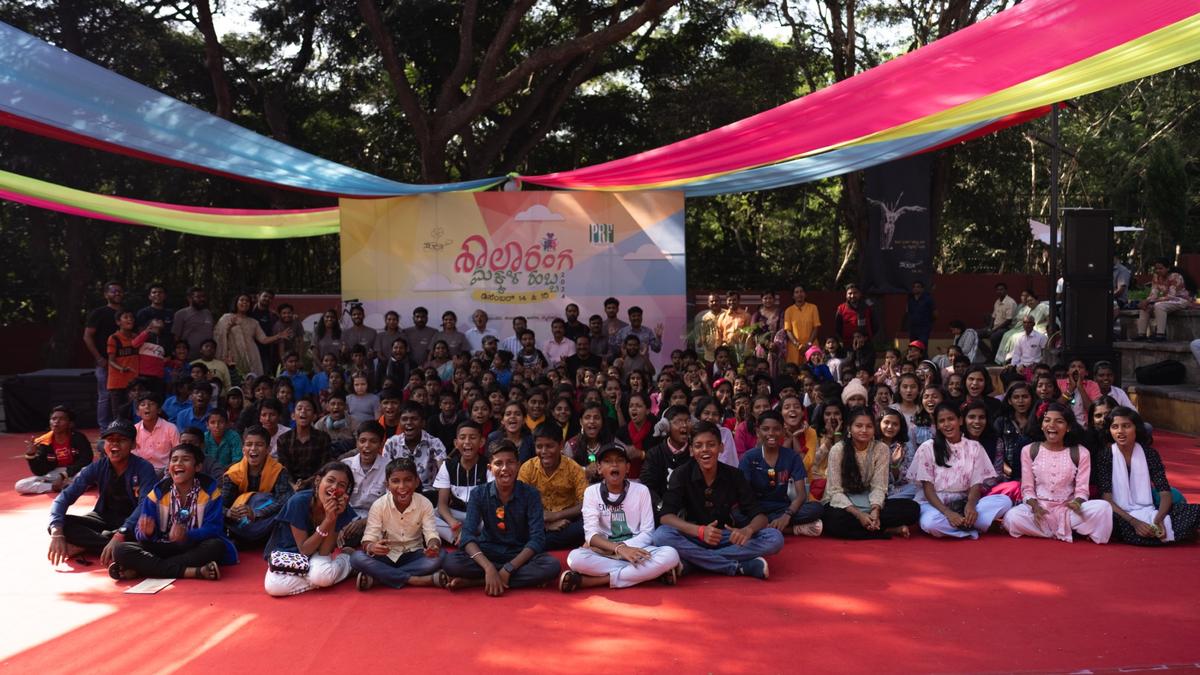
Prakash Raj’s Nirdiganta to host national conference on theatre as a tool in education
The Hindu
Titled ‘Theatre as a tool in education’, the conference will be a discussion on various topics including classrooms as theatre, theatre for toddlers, philosophy for children, theatre as a therapy for children, writing for children, making theatre for young audiences, curriculum drama, integrating creativity into education, creating an anti-oppressive classroom and more.
Theatre is one of the art forms that encourages children to think out of the box and create characters, and explore diverse scenarios. However, using theatre as a tool in education is something many theatre practitioners, teachers, pedagogists and psychologists are still exploring.
To find ways to integrate theatre into education, Nirdiganta, a theatre incubation centre in K. Shetihalli, Srirangapatana, founded by multilingual cinema and theatre actor Prakash Raj, is having a three-day national conference from December 26 to 28.
Titled ‘Theatre as a tool in education’, the conference will be a discussion on various topics including classrooms as theatre, theatre for toddlers, philosophy for children, theatre as a therapy for children, writing for children, making theatre for young audiences, curriculum drama, integrating creativity into education, creating an anti-oppressive classroom and more.
With 17 topics spread over three days, some of the renowned speakers at the conference are Jehan Manekshaw, Dr. Chandra Dasan, Anita Nair, Sunar Sarukkai Anurupa Roy, Samta Shikhar, Dr. Shekhar Seshadri, Kavya Srinivasan, Nisha Abdulla, Sanyukta Saha, Mala Giridhar, Shaili Sathyu and more.
The conference comes after the successful completion of two projects Shalaranga (School theatre) which aimed to integrate education and theatre, and recruitment of theatre teachers under Shala Rangavikasa(School theatre development project) over one and a half years.
Speaking to The Hindu, Prakash Raj said that the aim of the projects and the conference is to look at theatre as something beyond just acting. “We are trying to find a curriculum, where theatre can be a tool in education. This will help sharpen the perception of children, the way they look at anything in life, boost confidence and more,” he said.
“The first level of this project was us training theatre actors and directors with a curriculum that included folk stories, puppetry and music. Post that, we chose government residential schools, where these directors and actors were sent. A total of 107 schools were covered in one and a half years. We documented the impact, result and feedback of this project. Post that we had another team follow up in the children and look into how they were doing,” he explained.











